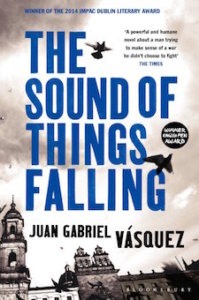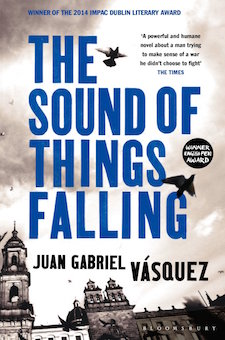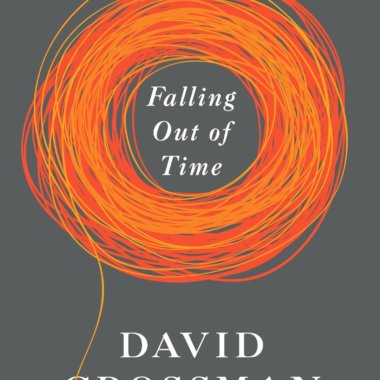
Yammara grew up in the 1980s when Pablo Escobar, the ruthless capo of the Medellín Cartel—“our particular Columbian story”—bombed, assassinated and murdered hundreds, perhaps thousands, of people while building an international drug trade. Like many Columbians during this decade, Yammara feared the violence but did not believe it would affect him personally. Around the time that Escobar was “shot dead on a Medellín rooftop” in 1993, Yammara had graduated from law school with honors and was the youngest professor to teach an Introduction to Law course at the university.
The story opens in mid-2009 when Yammara, now almost forty, sees a picture of a dead, pearl-black hippopotamus in a newsmagazine. It had escaped from Hacienda Nápoles, a run-down vestige of Pablo Escobar’s personal paradise in the Magdalena Valley, where he imported “giraffes, elephants, rhinoceroses, huge birds of every color” for his zoo—“a millionaire drug baron’s eccentricity.” The Hacienda was also where pilots took off and landed on runways “designed for the business” of drug running that made Escobar a wealthy man.
The image of the hippopotamus takes Yammara back to 1996, to the time when he ran two blocks on the streets of Bogotá to catch up with Ricardo Laverde, an acquaintance he had met at the 14th Street billiards club in late 1995. Seeing the picture of the hippo “printed across half a page of a national newsmagazine,” Yammara remembers the years when “nothing interested me as much as the mystery of his life.” The image of this animal and the attendant memory of Laverde are revelatory: He notices “not without some astonishment, that the death of that hippopotamus put an end to an episode of my life that had begun quite a while ago, more or less like someone coming back home to close a door carelessly left open.”
To close the door on the Laverde episode becomes urgent for Yammara. He “read somewhere that a man should tell the story of his life at the age of forty.” Soon turning forty, Yammara chooses to write about the day and the years that set him on a trajectory that altered his life forever. This was the day in 1996 when he happened to be in the wrong place at the wrong time with the wrong person. On this day, Laverde was murdered and he, Yammara, severely wounded. He writes, “Laverde fell to the ground, and I fell with him, two bodies falling without a sound….” He remembered men lifting him into a truck and laying him “beside Laverde like one shadow next to another, leaving on the bodywork a bloodstain, which at that hour, with so little light, was as black as the night sky.” The bullet “passed through my gut” and lodged in the “hip bone, a few inches from my spinal column.” To save his life, his sister and father gave blood, and he awakened from surgery, hallucinating. In the following days and month, a “violent claustrophobia” engulfed him, as he became terribly aware of his vulnerability.
Yammara had known Laverde only a few months and was troubled by the mystery that seemed to envelop the man: He observed “a deep discrepancy between his diction and his manners, which were never less than elegant, and his disheveled appearance….” He thought, “This man has not always been this man. This man used to be another man.” This man, Yammara discovered, had just been released from prison, having spent twenty years for drug running in the 1970s.
On the day when Yammara chased after him, they had been at the Casa de Poesía where Laverde listened to the “sound of things falling from on high”—a black box recording of the crash of Flight 965 on which Laverde’s wife was flying to visit him after years of separation. Laverde was murdered minutes after he left the Casa de Poesía by two men on a motorcycle. His murder, Yammara’s near-fatal injury, and the black box recording took Yammara deep into Laverde’s past, so deep, in fact, that his obsession to find answers threatened his relationship with his wife Aura and daughter Leticia. The obsession led him to the Magdalena Valley and Las Acacias—formerly the home of Laverde and his wife Elena Fritts—where their daughter, Maya Fritts lived.
At Las Acacias, Yammara relived the life of his nemesis. There, he read the letters and viewed the photos that Maya collected after Laverde’s death. He learned about Elena’s days as a Peace Corps volunteer and of Laverde’s profession as a drug runner, his arrest and imprisonment. At Las Acacias, Yammara and Maya listened to the black box recording of the Boeing 757 crash on December 21, 1995—the black box Laverde bought with new drug money—and Maya had retrieved from her father’s landlord, Consu. Together, they heard the captain cry, “’Up, up, up!’” and the sound of things falling apart as Elena crashed to her death. “There goes my mom,” Maya said to Antonio. “She’s going to be killed…and…leave me all alone.”
Yammara writes a fascinating story about his new acquaintance Laverde, but it is not the only one that interests him. Embedded in the Laverde story is a deeper one of the collision between lives, why “it’s always somewhat dreadful when someone reveals to us the chain that has turned us into what we are, it’s always disconcerting to discover, when it’s another person who brings us the revelation, the slight or complete lack of control we have over our own experience.” Reflecting on the days he spent with Maya at Las Acacias, he writes that “the sound of lives disappearing as they pitch over the edge into the abyss, the sound made by Flight 965 and all it contained as they fall into the Andes… was also the sound of Laverde’s life, tied irremediably to that of Elena Fritts. And my life? Did my own life not begin to throw itself to the ground at this very instant, was that sound not the sound of my own downfall, which began there without my knowledge?”
The premise of Yammara’s life story seems simple enough: The destiny of his life was intertwined with the life of another man who brought him down. But the premise avoids the complexity of choice: What if we weigh the knowable against the unknowable consequences of our actions before we act? If Yammara had accepted Laverde’s invitation to talk after a game of billiards, Yammara might have learned about Laverde’s past. If Yammara had decided to return to the university instead of chasing after Laverde, he would have avoided the fate of being a wounded bystander to a murder. If Yammara had chosen to stay with Aura and Leticia instead of visiting Maya at Las Acacias—where he thought he would find answers—he would not have returned to an empty house. Aura had left him.
During those years preoccupied with Laverde, Yammara was pulled between reason and emotion, choice and chance, life and death—the diametrical pairings that wreaked havoc in his life. When emotion took over, he abandoned reason and took the chance that things would work out. When they didn’t, he fought for his life, barely escaping death’s grasp.
In writing his life story, he sees the deeper story—the embedded story of colliding lives—and, in hindsight, he perceives that “adulthood brings with it the pernicious illusion of control, and perhaps even depends on it. I mean that mirage of dominion over our own life that allows us to feel like adults, for we associate maturity with autonomy, the sovereign right to determine what is going to happen to us next. Disillusion comes sooner or later, but it always comes, it doesn’t miss an appointment, it never has. When it arrives we receive it without too much surprise, for no one who lives long enough can be surprised to find their biography has been molded by distant events, by other people’s wills, with little or no participation from our own decisions.”
Maybe so. Life seems to have a will of its own. A chance occurrence disrupts the best-laid plan. A desired goal doesn’t pan out. Obstacles interfere. Death looms in the end. What, then, are we to make of Yammara’s conviction that our biography is a complex intermixture of other people’s wills and distant events in which we do not participate? Are we left with this: Is it ever possible to know, really, what we are getting into when we entangle ourselves in the lives of others?
And there is this as well in The Sound of Things Falling: pain, regret, ambition, obsession, and the disruption of reason. Yammara is a man who searched for the answer to a mystery he cannot solve, will never solve: Why?




1 comment
I’ve been wanting to read The Sound of Things Falling since reading this review and finally picked it up a couple days ago, reading it almost to its end in one sitting. It is novel of life, love, loss for both characters and country. Beautifully crafted, it will stay with you after you’re done reading.